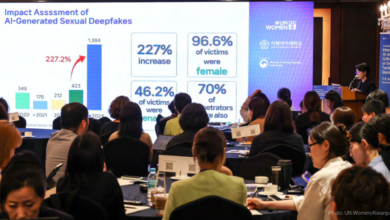Why America hates its children

Source: www.msn.com
The article “Why America hates its children” by Lydia Kiesling examines the systemic issues and cultural attitudes in the United States that contribute to a lack of support and care for children. Kiesling contrasts her experiences in Greece, where children receive unequivocal public support, with the situation in America, where children are often seen as nuisances and parents receive minimal state assistance.
Key points include:
- Public Attitudes: In America, children are often viewed as threats or nuisances. This contrasts sharply with countries like Greece, where there is a more community-based approach to child-rearing.
- Government Support: The U.S. ranks low among industrialized nations in government aid for children, with no mandated paid parental leave and limited childcare support. Childcare is expensive, consuming a significant portion of American families’ income.
- Childcare and Education: The U.S. faces challenges in providing adequate childcare and education, with many schools in poor condition. The foster care system is also under strain, and child labor laws are sometimes lax.
- Healthcare and Safety: America has high rates of infant mortality and child poverty. The leading cause of death for American children and teens is gun violence, with a pronounced racial disparity.
- Cultural Rhetoric vs. Reality: While American culture professes to value children and motherhood, this often doesn’t translate into supportive policies or practices. Historical and ongoing resistance to expanding childcare and social safety nets is evident.
- Racial Disparities: There are systemic racial disparities in childcare and family support systems. The legacy of slavery and exclusion from New Deal benefits for domestic workers, predominantly women of color, are examples.
- Response to the Pandemic: The pandemic briefly highlighted America’s shortcomings in child support. Emergency measures temporarily reduced child poverty but were not sustained.
- Community and Policy Efforts: Grassroots movements and some local policy changes show a growing awareness and effort to address these issues. However, a broader change in American attitudes and policies is needed to effectively support children and families.
Kiesling advocates for a shift from individualistic approaches to a more community-oriented mindset in raising and supporting children, reflecting on her experiences in Greece and the challenges faced in America.





